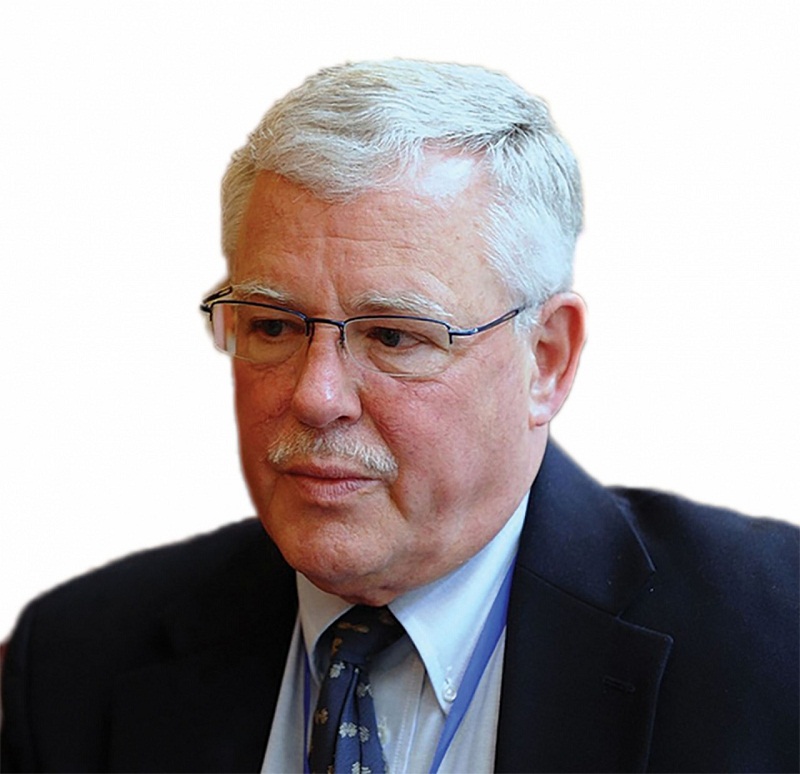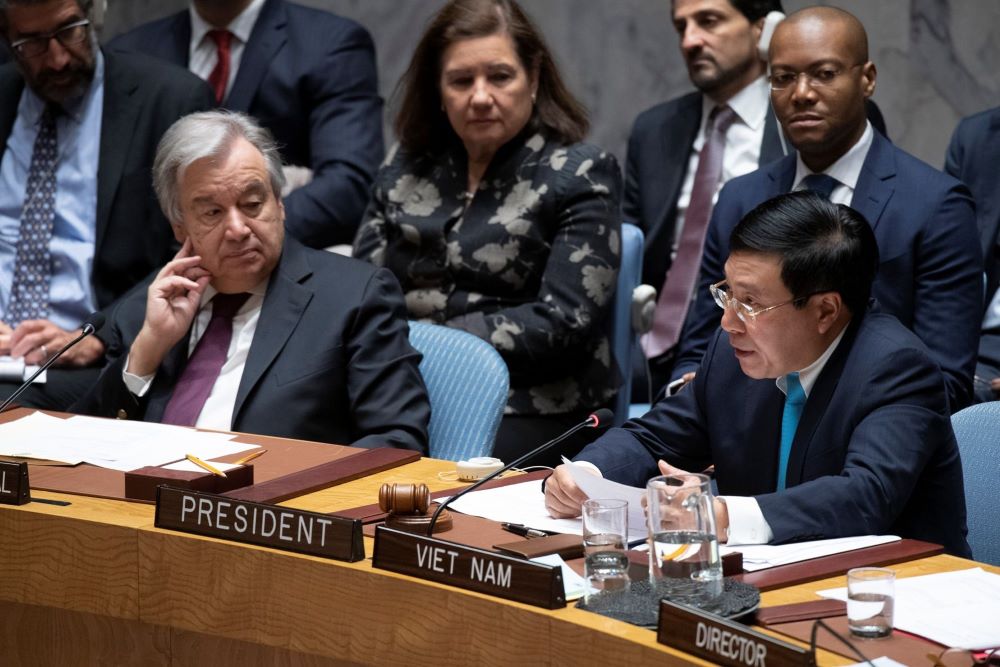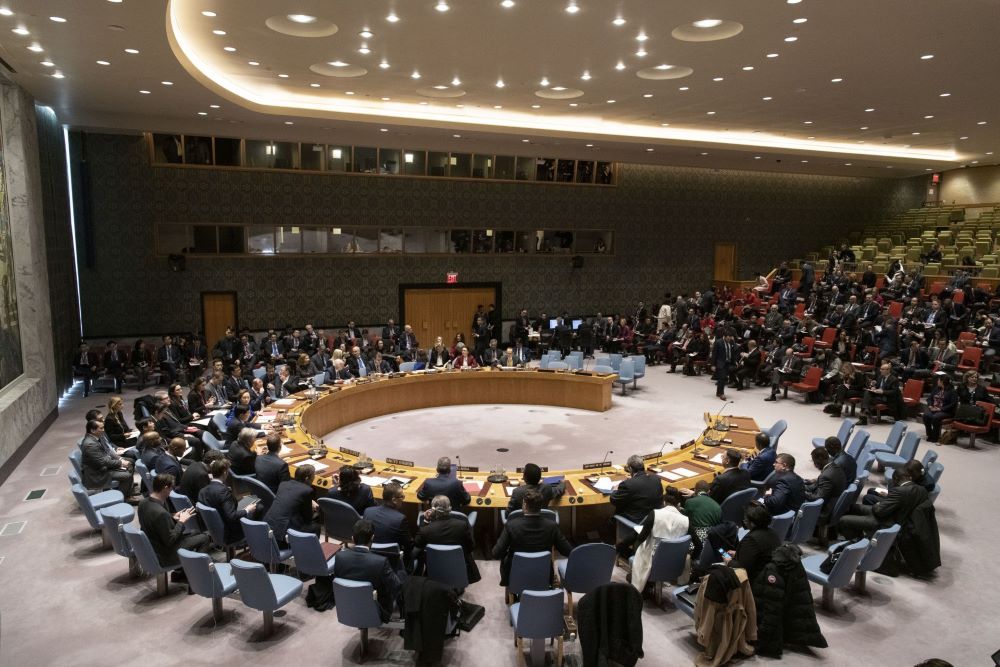Vietnam approaches each conflict independently during its UNSC term
Carl Thayer, Emeritus Professor at the University of New South Wales (UNSW), Canberra, has talked with The Hanoi Times about Vietnam's contribution to the UN in the 2020-21 period.
Now that the end of the year is approaching and Vietnam will finish its two-year tenure as a non-permanent member of the United Nations Security Council. It’s time to look back at the country’s contribution to this UN body. The Hanoi Times has the honor to have a conversation with Carl Thayer, Emeritus Professor at the University of New South Wales (UNSW), Canberra, on the issue.
| Carl Thayer, Emeritus Professor at the University of New South Wales, Canberra. |
What are the main issues that the UNSC focused on during the last two years 2020- 2021? And how did Vietnam contribute to solving them as a UNSC non-permanent member?
During 2020-2021, the United Nations Security Council (UNSC) was continually engaged in trying to end armed conflicts in Africa (Somalia, Sudan and South Sudan, the Democratic Republic of the Congo, Central African Republic, Mali, West Africa, etc.), and engage in reconciliation, peacebuilding, and stabilization in strife-torn areas (Afghanistan, Bosnia Herzegovina, Colombia, Cyprus, Haiti, Kosovo, Libya, Middle East-Palestinian question, Syria, Ukraine, Venezuela, and Yemen).
Vietnam increased its contribution to the United Nations Mission in South Sudan (UNMISS) by providing additional personnel to its Level 2 Field Hospital. Vietnam deployed female peacekeepers for the first time. Vietnam’s Permanent Representative to the UN, Ambassador Dang Dinh Quy, headed a committee that conducted a field trip to South Sudan in November this year to monitor the peace process.
Over the last two years, the UNSC was also active in dealing with thematic issues such as non-proliferation (North Korea, Iraq), terrorism, peacekeeping, children and armed conflict, protection of civilians in armed conflict, and women and peace and security.
In the period, Vietnam has been president of the Security Council twice. In January 2020, Vietnam initiated two resolutions, one on the United Nations and regional organizations (ASEAN) and the other on the maintenance of international peace and security (UN Charter). In April, Vietnam shepherded four resolutions, two on the situation in Libya, non-proliferation of weapons of mass destruction, and protection of children in armed conflict.
Vietnam approached each conflict independently and stressed the role of following the UN Charter, international law, and the peaceful resolution of disputes through dialogue. Also, Vietnam has been vocal in supporting reform of the UNSC to make its membership more representative of UN membership in terms of geographical representation (India and Japan) and level of development (Brazil).
| Vietnam's Deputy Prime Minister chairs an open debate at the United Nations Security Council on January 9, 2020. Photos: UN |
During its second term as president of the Security Council, Vietnam organized four teleconference debates on mine action, women and sexual violence in conflict, cooperation between the UN and regional and sub-regional organizations, and protection of civilians in armed conflict. Vietnam also sponsored a debate on climate and security, a first for the Security Council.
Beyond dealing with ongoing conflicts around the world, Vietnam contributed to the much larger issue of how to maintain international order by preventing and resolving conflicts. Vietnam undertook four major initiatives.
First, it was instrumental in sponsoring an Open Debate on Upholding the United Nations Charter to Maintain International Peace and Security. The Security Council adopted a presidential statement drafted by Vietnam as chair of the debate.
Second, Vietnam initiated a meeting on UN-ASEAN cooperation involving the secretary generals of both organizations to discuss cooperation on, among other things, sustainable development and countering-terrorism.
Third, Vietnam organized a meeting among the five permanent and ten non-permanent members of the Security Council to share best practices and experiences to enhance the efficacy of decision-making.
Fourth, Vietnam successfully held an international conference on Strengthening Women’s Role in Building and Sustaining Peace.
| The meeting was on January 9, 2020, chaired by Vietnam. |
How has Covid-19 put obstacles on multilateral diplomacy during the last two years? Could you evaluate Vietnam's efforts to overcome this challenge?
During Vietnam’s first term on the UNSC, it was also ASEAN Chair. The Covid-19 pandemic disrupted ASEAN’s agenda and schedule of meetings in 2020; the pandemic also prevented the holding of many important face-to-face high-level multilateral meetings. Vietnam overcame the negative impact of the coronavirus by organizing virtual conferences at the head of government and ministerial level, both bilaterally and multilaterally, to address a collective response to Covid-19.
Vietnam emerged as the spokesperson not only of ASEAN’s ten members, but also the developing world in general. Vietnam forged a common ASEAN response to Covid and enlisted the support of its dialogue partners. Vietnam continually called for the equitable distribution of the Covid-19 vaccine and the transfer of technology for local production.
In 2020, all of Vietnam’s top leaders (the “four pillars”): Secretary General of the Communist Party of Vietnam, State President, Prime Minister, and Chair of the National Assembly, addressed the UN via video.
In 2021, President Nguyen Xuan Phuc addressed the General Assembly in person. He reiterated the call for the equitable distribution of the Covid vaccine and related technology to developing countries that needed it.
In August this year, Vietnam changed its policy of combatting Covid from Zero Covid to a massive campaign to inoculate the population. This was possible because of a highly effective international campaign of Covid-19 diplomacy that netted 55 million doses of vaccine.
One of the issues that the UNSC focused on during the last two years was the military coup d’état in Myanmar and its aftermath. What is your evaluation of Vietnam’s efforts in this issue as well as Vietnam’s contributions to UN-ASEAN relations?
Any permanent member of the UNSC can veto a resolution. The UNSC issued only three statements on the situation in Myanmar in 2021 (February 1, March 2, and March 10). The UNSC is hamstrung because of differences between the United States, on the one hand, and China and Russia on the other.
Vietnam has fully supported ASEAN’s Five-Point Consensus and the role of the ASEAN Special Envoy. Vietnam’s position was made clear by Ambassador Dang Dinh Quy. He
stated that Vietnam did not support unilateral sanctions. But Vietnam, as a UN member, will “follow all the decisions made by the United Nations Security Council, as long as it’s effective and as long as it’s not exerting any negative impact on the lives of the people and on the humanitarian situation in the country concerned.”
In 2020, at the initiative of Vietnam, the UNSC held one meeting and three video conferences to discuss “Cooperation between the United Nations and regional and subregional organizations in maintaining international peace and security.”
On January 30, the UNSC focused on cooperation between the UN and ASEAN and was briefed by the secretaries-general of both organizations. In discussions, members of the Security Council acknowledged the importance of regional organizations and their role in promoting peace and security in cooperation with the UN.
Some members specifically discussed the South China Sea and Rohingya refugees in Myanmar. General agreement was reached to promote further cooperation in counter-terrorism and organized crime and climate change.
Thank you for your time!














